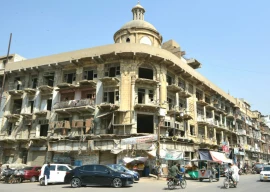
Industry experts have stated that a reason behind the hike in energy cost and the surge in cost of doing business is the appointment of officials on vested interests in the power sector in complete disregard of the fit and proper criteria.
They were of the view that the concept of boards, which was introduced to improve efficiency in the power sector, was marred with the appointment of non-practitioners on political grounds. This increased the cost of distribution companies (DISCOs), rather than reducing the energy cost for consumers, they maintained.
At an event titled “Energy Sector Reforms – Increase in Cost of Doing Business” on Thursday, former Power Division secretary Irfan Ali stressed that during the past three years, the appointees in these boards, in the name of reforms, just increased expenses of the distribution companies.
“The nation has not yet seen a single reform,” he remarked.
He was of the view that the privatisation of power sector was impossible because of the uniform tariff. The government notified a uniform power tariff for all DISCOs, irrespective of their efficiencies, he said.
Referring to the past, Ali recalled that a massive campaign against power theft was launched by the government, which resulted in an additional revenue collection of Rs260 billion.
“This was made possible with political support,” he said and emphasised that power theft could be minimised with government support.
He pointed out that the International Monetary Fund (IMF) pressurised the country to end the subsidy for power consumers, which was averted during his tenure. “Monthly circular debt has been brought down to Rs12 billion from Rs35 billion,” he added.
Regarding the energy mix, he pointed out that a demand-driven estimate was made during his tenure by the National Transmission and Despatch Company (NTDC) till 2040.
Read Karachi industries starved of gas
“Under this mechanism, the cheapest available energy would have been acquired in accordance with the country’s requirements, while no additional energy would have been added to the system to avoid any capacity and other charges.”
This mix, however, was changed by the National Electric Power Regulatory Authority (Nepra).
Power sector issues could not be resolved overnight, he underlined and added that there was a need for concentrated efforts for energy generation, distribution, etc.
On the occasion, former Pakistan Electric Power Company (Pepco) managing director Tahir Basharat Cheema emphasised the need to establish a power sector advisory committee – similar to the Economic Advisory Committee – with the task of policymaking and advising the government on energy.
“There are issues in the IPPs’ (independent power producers) contracts,” he said, adding that the government was not providing any financing support to the sector and they were being asked to operate on their own.
“Privatisation of power sector is not possible even for the next one and a half decade, as no government has the capacity to take such a huge responsibility.”
The overall default money of the power sector stood at around Rs1.6 trillion, out of which Rs1 trillion was due on the private sector and Rs600 billion on the public sector, Cheema pointed out.
Lahore Chamber of Commerce and Industry (LCCI) President Mian Nauman Kabir underlined that cheap energy and cheap financing were among the key components for economic growth in the country.
“If the government ensures the provision of these two components, then nothing can stop the country from progressing,” he remarked.
He stressed the need for improving the energy mix by focusing on renewable, cheaper and environment-friendly sources of energy generation.
Kabir pointed out that the government had ended stakeholders’ representation in DISCOs, as “previously business community representatives were on Lesco (Lahore Electric Supply Company) board”.
“Now, the government does not give them any representation in the boards,” he lamented.
Published in The Express Tribune, January 28th, 2022.
Like Business on Facebook, follow @TribuneBiz on Twitter to stay informed and join in the conversation.



1729662874-0/One-Direction-(1)1729662874-0-165x106.webp)





1732084432-0/Untitled-design-(63)1732084432-0-270x192.webp)








COMMENTS
Comments are moderated and generally will be posted if they are on-topic and not abusive.
For more information, please see our Comments FAQ